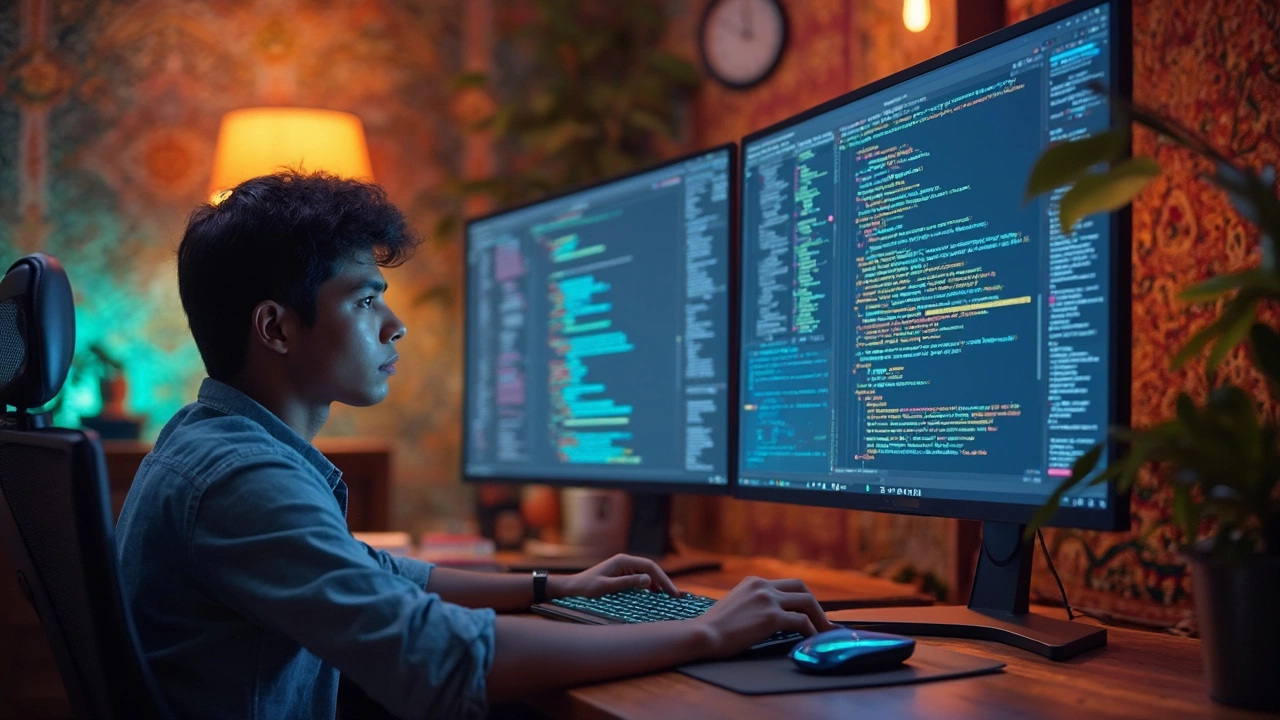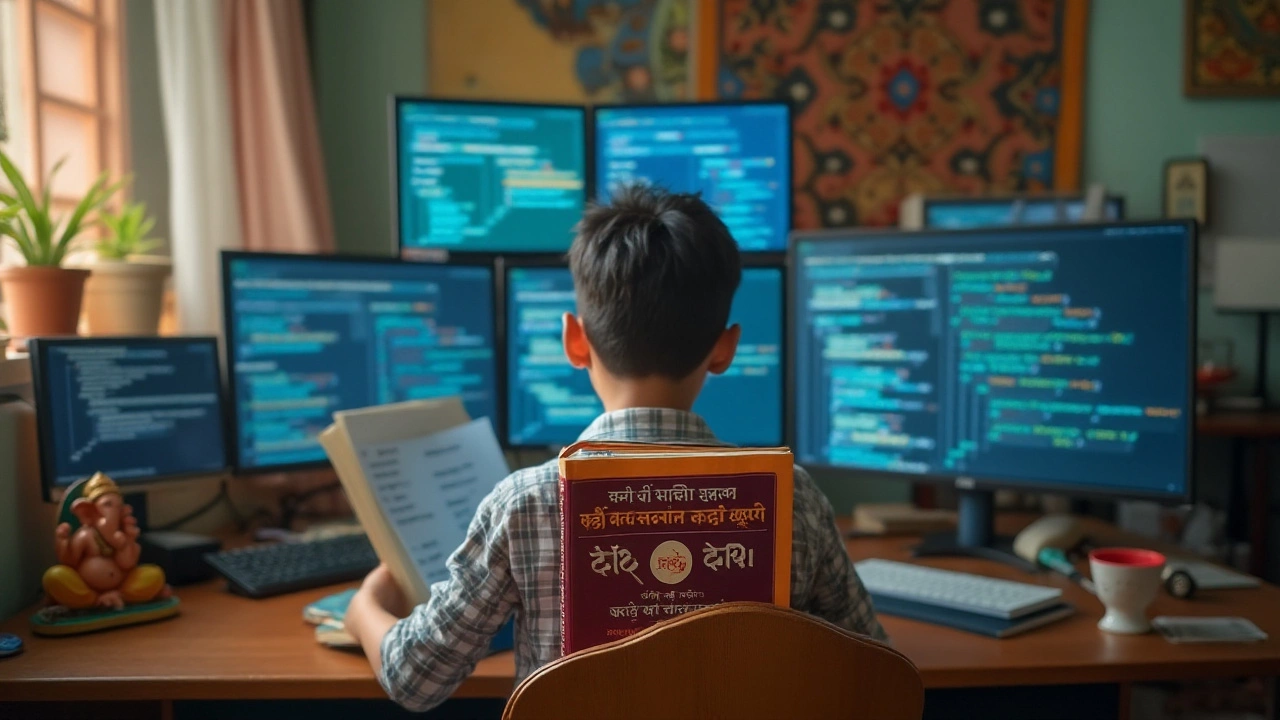
How Many Hours Should You Practice Coding Daily for Real Progress?
Curious how many hours a day you should code? Get real advice, data-backed insights, and practical tips to become a better coder without burning out.
Read MoreWhen working with Programming Courses, structured learning paths that teach you how to write, test, and maintain software applications. Also known as coding classes, they help beginners and career‑shifters alike to gain practical tech skills.
Effective coding practice, regular hands‑on coding sessions that reinforce concepts is a core component of any solid program. Programming Courses that embed daily practice see faster skill retention, because repetition builds muscle memory. At the same time, many learners opt for self‑taught programming, learning without formal classroom settings, using free resources and project‑based study. This approach lets you pace yourself, pick the tools you like, and apply knowledge directly to real projects.
Traditional coding classes, in‑person or online courses led by instructors, still attract many students because they provide mentorship and structured timelines. However, the best fit depends on three semantic relationships: Programming Courses encompass coding practice, Programming Courses require self‑taught programming skills for flexibility, and coding practice influences the effectiveness of Programming Courses. Look for curricula that blend guided lessons with independent challenges, so you get both expert feedback and the freedom to explore.
Another important attribute is the focus on real‑world projects. Courses that culminate in a portfolio piece let you showcase what you’ve built, which matters more to employers than certificates alone. Also check whether the program covers modern tools—version control, debugging, and basic algorithms—because these are the building blocks of any software job today.
Finally, consider your schedule and budget. Some programs charge premium fees for live mentorship, while others offer free resources that rely on self‑discipline. Decide whether you need the accountability of an instructor or if you can stay motivated with community forums and peer reviews.
Below you’ll discover a curated collection of articles that dive deeper into each of these topics—how much coding to practice daily, tips for adult beginners, the truth about learning difficulty, and cost guides for coding classes. Use them as a roadmap to pick the programming course that matches your goals and lifestyle.

Curious how many hours a day you should code? Get real advice, data-backed insights, and practical tips to become a better coder without burning out.
Read More
Wondering if it's too late to learn coding at 35? Bust myths, discover success stories, and get actionable tips to thrive as an adult beginner coder.
Read More
Is coding really as tough as people say? This article breaks down what makes coding seem hard, what skills actually matter, and who tends to pick it up faster. You'll get surprising facts about the industry, tips to make learning easier, and real stories from those who switched to tech careers. Discover if coding is the right fit for your strengths.
Read More
Ever wondered if you can teach yourself to code? This article breaks down the reality behind self-taught programming, sharing useful facts and straightforward tips. Find out what it really takes to pick up coding skills on your own. Get practical steps, common mistakes to avoid, and advice on where to find solid resources. Perfect for anyone thinking about skipping traditional classes and going solo with their coding journey.
Read More
Jumping into the world of coding solo? It's not only possible but also exciting if you know where to start. Learning to code on your own gives you control over your pace and areas of interest, allowing for a personalized learning journey. While the internet is overflowing with resources, picking the right ones can make or break your journey. Let’s explore practical tips for tackling coding projects independently.
Read More
Are programming and coding the same thing, or is one more beneficial to learn? Understanding their differences can help you decide which skill aligns with your goals. This article explores the unique aspects of coding and programming, offers practical tips, and delves into their real-world applications. Whether you're aiming for a career in tech or simply want to pick up a valuable skill, discover what could be the best fit for you.
Read More
Understanding the difference between programming and coding can be baffling, but it's crucial for anyone stepping into the tech world. Coding is the act of writing code in a language understood by a computer, while programming involves developing a complete software application from scratch, including design, testing, and maintenance. Knowing these differences can guide you in choosing the right courses or career paths. This article breaks down the core distinctions, helping you grasp what's essential for your learning journey.
Read More
Coding classes have become increasingly popular as the demand for tech skills grows. With various types available, from in-person courses to online boot camps, the costs can differ greatly. This article offers an in-depth look into what factors influence the cost of coding classes and provides tips on how to choose the right coding course for your needs.
Read More
In the tech-driven era we live in, beginner coders have numerous opportunities to turn their newly acquired skills into income streams. With the right approach and mindset, even novice developers can find lucrative projects that require basic coding knowledge. From freelancing to entry-level positions, the path to making money through coding is more accessible than ever. This article explores various avenues beginners can pursue to start earning while honing their programming capabilities.
Read More
Unraveling the distinctions between coding and programming can be confusing, particularly for beginners. While both terms are frequently used interchangeably, they encompass different aspects of software development. Coding is about translating human language into machine code, while programming involves a broader scope of creating entire software systems. This article delves into the nuances, helping aspiring developers grasp essential concepts and sharpen their skills.
Read More